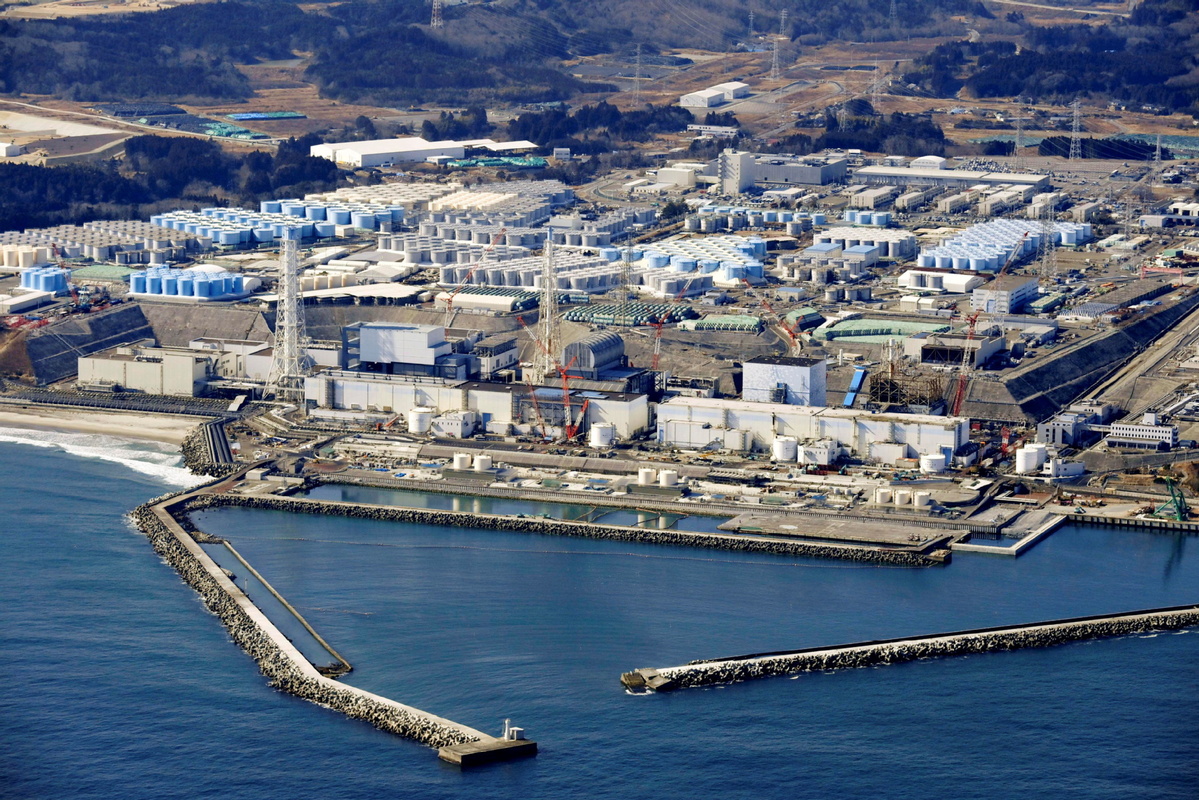Japan must face facts, drop plan to dump Fukushima water in Pacific


China on Tuesday urged Japan to follow science and face up to the doubts and questions arising from the international community.
Foreign Ministry spokesman Wang Wenbin made the remarks at a daily news briefing in response to Japanese claims that China and the Republic of Korea hold lower standards in disposing of the contaminated water of nuclear power plants, so their criticisms towards Japan make no sense.
"Such a claim is not science-based and extremely irresponsible, which only shifts conceptions and deflects attention," Wang said.
He stressed that Japan's Fukushima nuclear water is completely different from the water discharged by normal operative nuclear power stations in terms of the source and disposal difficulty level.
He said that normal water discharge from a nuclear power plant abides by international universal standards and is released in an organized manner after being treated and meeting examining standards, which is proved by years of practice as secure and controllable.
Yet as the most serious nuclear accident, the contaminated water produced by the Fukushima nuclear power station is composed of a large number of radioactive nuclides, which are not exited in nature before, he added.
He also noted there is no precedent of discharging such nuclear waste water in the world, adding that the impacts brought to the marine environment and public health brook no ignorance.
Besides, he said that water discharged by a normal operative nuclear power plant is not radioactive contaminated water, while Fukushima nuclear contaminated water needs to be purified and treated through Advanced Liquid Processing System technology. And whether it can meet the standard to discharge requires verification.
According to an article published on April 13 by the prestigious academic journal Science,some isotopes, including ruthenium, cobalt, strontium and plutonium, which are more dangerous and have longer radioactivity, sometimes still remain after being processed by Advanced Liquid Processing System technology.
"Whether the Japanese side can ensure long-term and stable treatment is highly questionable,"Wang asked.
Before exhausting all safe ways of disposal, Japan, out of selfish interests of its own and so-called excuse of limited tanks for storage, unilaterally chose the most cost-effective solution to dump the contaminated water into the sea in absence of consultation with relevant stakeholders and the international community, he said.
"It is highly irresponsible for the Japanese side to shift responsibility, which should have been borne by itself to the whole of humanity and make the world vulnerable to the biggest security risks in terms of environment and health," he added.
Wang called for Japan to faithfully implement international obligations and redress the erroneous decision that was made unilaterally to discharge contaminated water produced in the Fukushima nuclear accident into the sea. He added Japan should take concrete action to win the trust of neighboring countries and the international community.

































